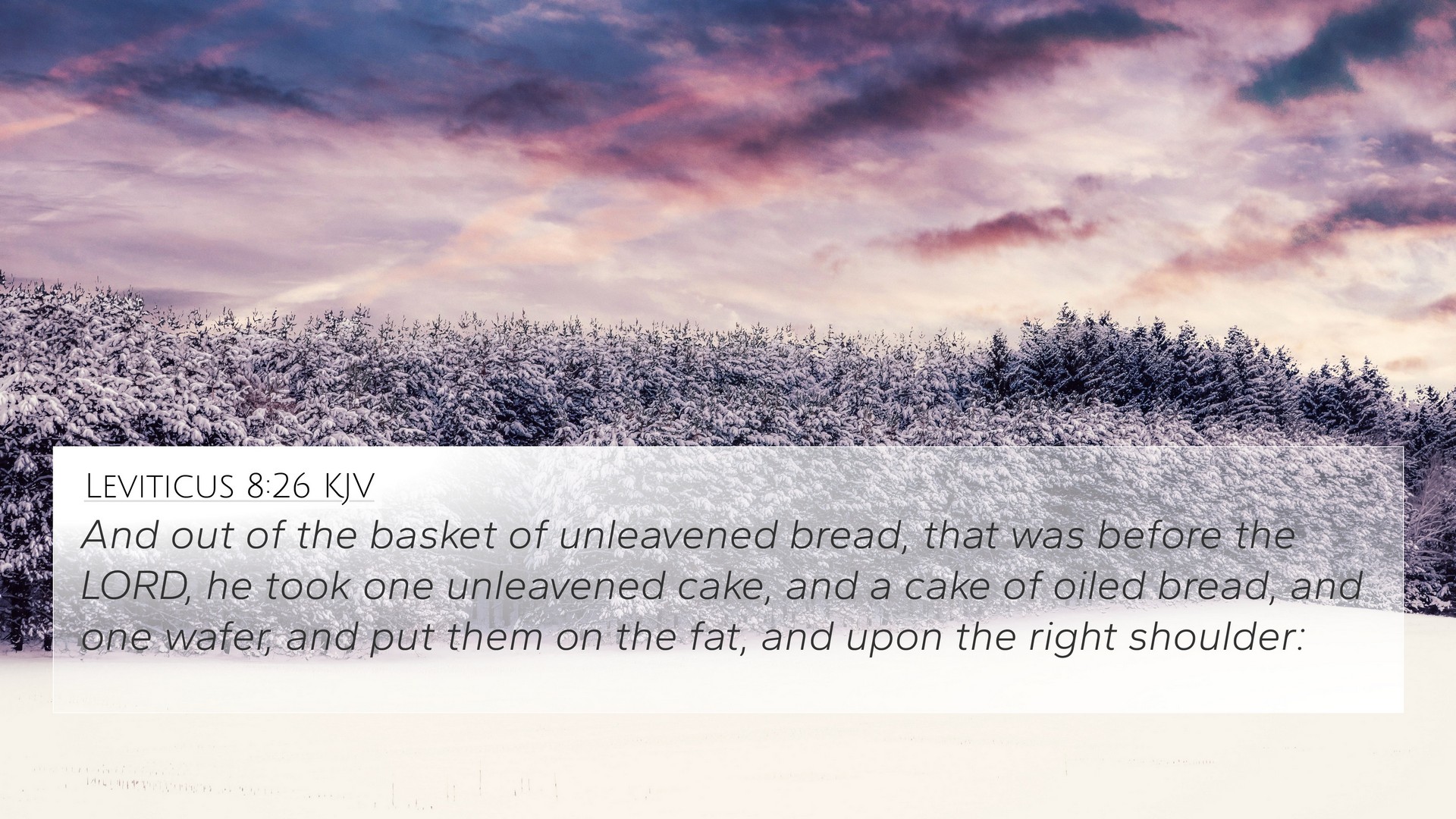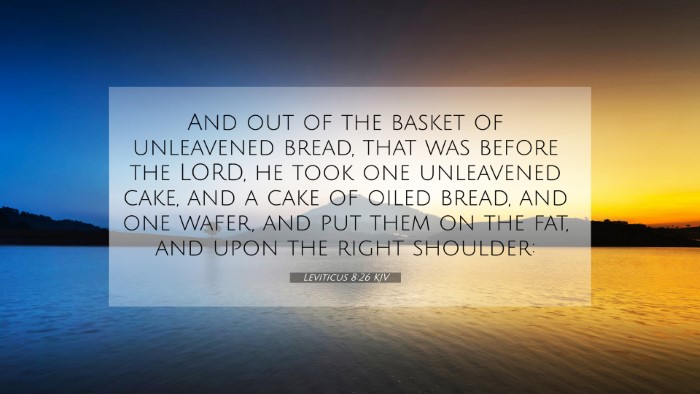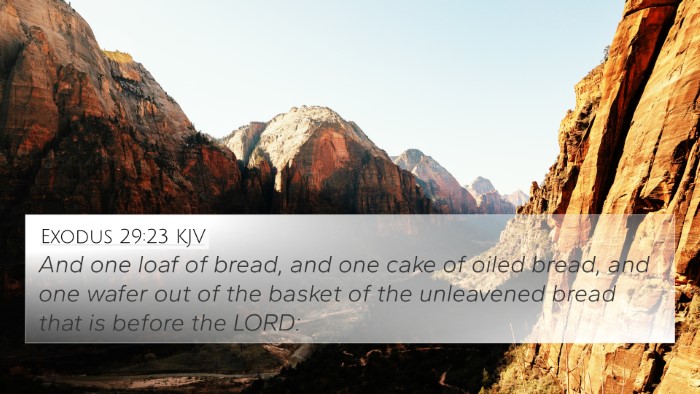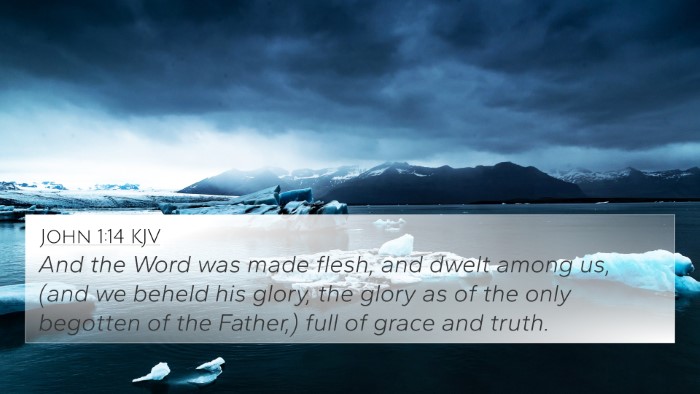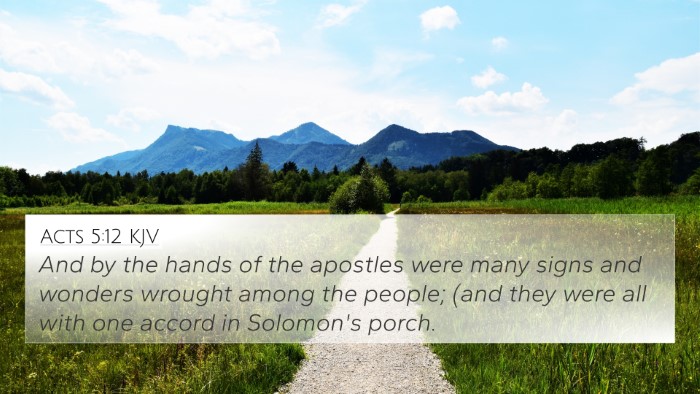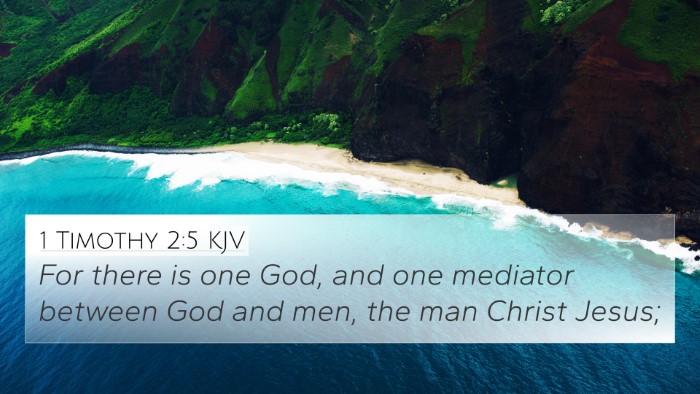Understanding Leviticus 8:26
Verse Reference: Leviticus 8:26
This verse is part of the larger context concerning the consecration of Aaron and his sons as priests. It highlights the significance of the offerings made during this sacred ceremony.
Verse Analysis
In Leviticus 8:26, we find instructions related to the offerings, emphasizing the role of anointing with oil and the presentation of certain items to the Lord. The key components of the verse are:
- Anointing Oil: Symbolizes setting apart for divine service.
- Wave Offerings: Represents the offering being presented to God.
- Significance of Priestly Role: Highlights the importance of mediators between God and the people.
Insights from Commentaries
Matthew Henry: He emphasizes the importance of being consecrated and set apart for God’s service. The oil used in anointing symbolizes the Holy Spirit and plays a vital role in establishing divine authority. Henry also notes that the act of waving the offerings indicates recognition of God’s sovereignty.
Albert Barnes: Barnes discusses the ceremonial aspects of this verse. He explains that the offerings were made to signify the holiness of the priests and their unique role in presenting people’s sacrifices to God. Barnes points out that the specifics of the offerings highlight the meticulous nature of worship grounded in obedience to God’s commands.
Adam Clarke: Clarke elaborates on the symbolism of the anointing oil and its role in separating the priests from the common people. He notes that it represents not just physical anointing but also a spiritual empowering. Furthermore, Clarke connects this to the New Testament depicted priesthood of believers, reflecting on how all Christians are called to a holy priesthood.
Connections Between Bible Verses
Leviticus 8:26 connects with several other important scriptures, showcasing the theme of consecration and priesthood throughout the Bible. The following verses provide insight into the broader biblical narrative:
- Exodus 28:41: Discusses the garments of the priests and their consecration.
- Hebrews 5:4: Indicates the divine appointment of high priests and their calling.
- 1 Peter 2:9: Refers to believers as a royal priesthood.
- Romans 12:1: Calls believers to present themselves as living sacrifices.
- Leviticus 8:21: Focuses on the atonement aspect during the consecration ceremony.
- Exodus 29:22: Details offerings associated with the priest's consecration.
- Revelation 1:6: Affirms that Christ has made believers into a kingdom of priests.
- 1 Timothy 2:5: Highlights Jesus as the mediator and high priest for humanity.
- Hebrews 10:22: Encourages approaching God with confidence, having been cleansed.
- James 4:8: Calls for believers to draw near to God, paralleling the priest’s role.
Thematic Bible Verse Connections
The themes found in Leviticus 8:26 resonate deeply within both the Old and New Testaments, linking the practices of ancient Israel with the spiritual realities in Christ. This connection reinforces the role of intercession and the importance of approaching God through appointed individuals.
This leads to the appreciation of scriptural cross-referencing as a tool for deeper understanding, offering a framework for studying various aspects of the Bible harmoniously.
Using Cross-References in Study
To efficiently navigate these connections, one might utilize tools such as:
- Bible Concordance: To find specific terms and their occurrences throughout Scripture.
- Bible Cross-Reference Guide: Provides a systematic way to view scriptures that relate to each other.
- Cross-Reference Bible Study: Encourages thematic exploration by drawing parallels.
- Comprehensive Bible Cross-Reference Materials: Include annotated resources for enriched study.
Conclusion
In summary, Leviticus 8:26 offers profound insights into the priestly system established by God. The verse signifies the importance of holiness, the symbolic use of anointing oil, and the necessity of offerings. Through inter-Biblical dialogue, it establishes connections with other scriptures that continue to reveal God’s plan for His people and His desire for worship grounded in holiness.
By engaging in comparative Bible verse analysis and utilizing cross-referencing techniques, believers can enhance their understanding of this and other Bible verses, leading to a more profound spiritual walk.
